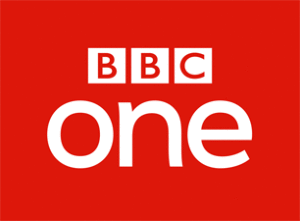 How to watch BBC One Live Online Abroad Using A VPN
How to watch BBC One Live Online Abroad Using A VPN
Recently the news has been full of BBC blocking licence paying viewers who either live abroad or are on holiday and using a VPN to watch BBC One from outside the UK.
What you read is actually quite true, BBC are clamping down due to the fact that there are estimated to be over 60 million people outside the UK watching BBC One online without paying their license fee. Now not all of those 60 million people are actually non license payers, many of them pay for the BBC license and pay for a VPN on top of that to enjoy viewing BBC One and all other channels on iPlayer. The mission BBC has is an impossible one, they would have to block every single data center within the UK, including many ISPs, colleges, schools, universities, hospitals and any UK based internet network. This would potentially put BBC´s viewing traffic below that of ITV and that would be very damaging for BBC as a business. Viewers create ratings and ratings creates revenue, the more viewers a TV company has, the higher they are rated and the more attractive they are for media investment. Do you really think BBC are stupid enough to want to lower their potential in the TV market?
As it stands, BBC One is the most watched UK TV channel followed by ITV, BBC Two and Channel Four. Take away the expats and holiday makers accessing BBC One via a VPN and online viewing will possibly place ITV into the number one spot. BBC really do not want this to happen and therefor, rather than blocking the IP ranges of VPN providers, which would have been the easiest way, they decided to place a simple cookie into the viewers browser after accessing BBC iPlayer from abroad. The internet traffic still shows as a hit, however the bounce rate because of the cookie system has most probably gone sky high, but the network is far to strong to worry about their bounce rate, so why not just block VPN IP ranges instead and guarantee total UK traffic? A VPN is providing UK traffic to each network because the data centers and IP ranges are based in the UK, it is therefor genuine UK traffic, although connections to some data centers are coming from outside the UK, the end result is still a UK traffic hit. Also, as mentioned earlier, blocking UK data centers would prevent many UK residents who reside in the UK from viewing TV online and the BBC do not want that at all!
The cookie system is simple to get around but we will stress as in our disclaimer, to view UK TV abroad you must be a UK TV license payer, not paying your TV license is your own risk, no matter where you are in the world and no matter if our system works without.
When you connect to one of our UK servers and load up BBC but get the message “Only available in the UK”, it is because you have accessed BBC iPlayer without connecting to one of our UK severs first. You have now got a cookie in your browser placed there by the BBC website. The cookie will stay there until you clear your entire browser from the very beginning, not just the default “past hour”, you need to clear it from the start, everything must go! When you have cleared your browser cookies, make sure you are connected to one of our UK servers before loading up BBC iPlayer and if asked, accept their cookie policy. BBC One will now load up perfectly fine without interruption and you can then enjoy your TV viewing from anywhere in the world!
Are you breaking the law? Yes you are if you are not a TV license payer, however, connecting to a VPN to hide your real IP address and encrypt your data when viewing websites, video streams and online content is not against the law. Most browser also have “Incognito” or “Private” mode, for example, right click your browse icon and look for the “Incognito” or “Private Browsing” option and you will be able to surf the internet without accepting any cookies from any website. Internet privacy is your choice and as long as Chrome, Firefox, Safari, Internet Explorer and Opera have inbuilt privacy modes, privacy will always be your choice.
